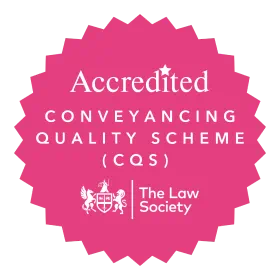Settlement agreements can feel daunting, especially when they arrive out of the blue. At Downie & Gadban Solicitors, we aim to make the process clearer, more transparent, and less stressful. Here’s a quick guide to help you understand what a settlement agreement is, why it matters, and what your options are.
What is a Settlement Agreement?
A settlement agreement (previously called a “compromise agreement”) is a legally binding contract between an employer and employee. It typically sets out the terms under which the employment relationship will end but can be used to settle any disputes without ending employment. In exchange for waiving certain legal rights – usually the right to bring claims in an employment tribunal – you may receive financial compensation or other benefits.
These agreements are commonly used in redundancy situations, disputes, or where both parties wish to part ways amicably.
Key Legal Implications
- Finality: By signing a settlement agreement, you waive your right to bring most types of claims against your employer, including unfair dismissal or discrimination claims.
- Confidentiality: These agreements often include confidentiality clauses, meaning you may not be able to discuss the terms or circumstances of the agreement.
- Reference Terms: Often, the agreement will include a clause outlining what kind of reference your employer will provide in future.
Because you are giving up valuable legal rights, it’s a legal requirement that you receive independent legal advice before signing the agreement.
What is the Cost of Legal Advice on a Settlement Agreement?
The legal fees are typically covered by your employer – although some may issue a budget on what they are prepared to cover. If they have not offered a sufficient sum to cover your legal fees, this could become part of the negotiation.
What If You’re Happy with the Agreement?
If you’ve read through the agreement and are satisfied with the terms – including the compensation offered, reference wording, and any non-compete clauses – you’ll still need to:
- Seek Legal Advice: A qualified solicitor must review the agreement with you. We’ll ensure the terms are fair and that you understand the implications.
- Sign the Agreement: Once all parties sign, it becomes legally binding. You’ll typically receive the agreed payment within 7 to 28 days, depending on the terms.
What If You’re Not Happy with the Agreement?
You don’t have to accept the first draft. If you feel the offer is too low, the reference unfair, or if restrictive covenants are too severe, you have options:
- Negotiation: We can negotiate better terms on your behalf, such as a higher payment, an agreed reference, or changes to post-employment restrictions.
- Raise Concerns: If there’s a potential legal claim (such as discrimination or whistleblowing), we can advise on the strength of that claim and leverage it to secure improved terms.
- Walk Away: You are under no obligation to sign. If the agreement doesn’t meet your expectations, we’ll advise you on next steps, including potential tribunal claims if appropriate.
The Settlement Agreement Process – Step by Step
- Initial Offer: Your employer makes a written offer, often accompanied by a draft settlement agreement.
- Seek Legal Advice: You choose a solicitor (like us!) to advise on the terms and help you understand your rights.
- Review & Negotiate: We review the document and negotiate changes if needed.
- Sign the Agreement: Once both parties agree, the agreement is signed.
- Payment & Finalisation: You receive your settlement, and the employment relationship ends as per the agreed terms.
Received a Settlement Agreement and Need Support?
We offer clear, tailored advice with no legal jargon along with a quick turnaround to meet deadlines and allow you to move forward into your new chapter.
Our experienced employment solicitor will negotiate robustly and fairly on your behalf, supporting you through what can be a stressful time.
If you’ve been offered a settlement agreement – speak to our employment law team today. We’ll protect your interests and ensure the terms are right for you.
Call us on 01420 82879 or email [email protected]
The contents of this blog are for general awareness purposes and do not purport to legal or professional advice. The law may have changed since this blog was published. Readers should not act on the basis of information shared within this, or any other blog, but should seek appropriate, professional advice on their own circumstances.



